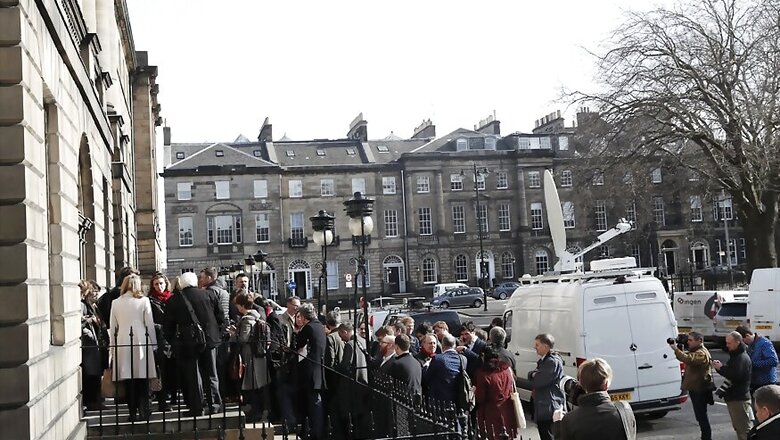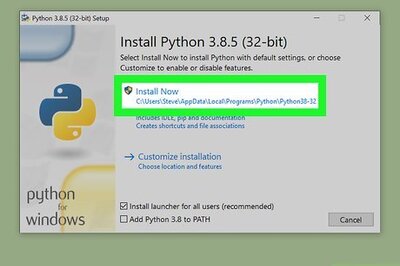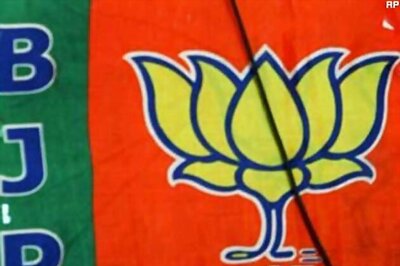
views
Edinburgh: Scotland's announcement on Monday that it will begin preparations for a new independence bid raised the spectre of one of Brexit's most feared consequences -- the end of the United Kingdom.
First Minister Nicola Sturgeon said she would seek the semi-autonomous Scottish Parliament's authority next week to ask the government in London for the powers to hold a referendum before Brexit happens.
The decision also heightened the uncertainty surrounding Britain as London braces for two years of tough negotiations to leave the European Union -- itself an unprecedented step.
A BMG survey for Scottish daily The Herald released Monday found that 52 percent were against breaking off from the rest of Britain, while an Ipsos Mori poll last week put the number at 51 percent.
The University of Aberdeen's Scottish politics chair Michael Keating said the outcome was "wide open" as the polls were within the margin of error.
But he said Sturgeon did not want a vote immediately "because it's the worst possible time to hold a referendum on independence: the price of oil is down and the economy is not doing very well," he told AFP.
Mark Diffley, director of Ipsos MORI Scotland, said Sturgeon would be hoping that "a very different campaign than 2014, conducted during what looks like a hard Brexit, will persuade enough voters to win".
Sturgeon said the new independence referendum could be held between autumn 2018 and spring 2019, once the outline of the Brexit agreement becomes clear but before Britain actually leaves the European Union.
Keating said he did not see "any room for compromise" in Sturgeon's announcement and warned that applying to get back into the EU would be "horrendously complicated" for an independent Scotland.
'Worst possible time'
For months, Sturgeon has pushed for Scotland to be allowed to stay in the European single market even as the rest of Britain pulls out but on Monday she said she had been faced with "a brick wall of intransigence".
"I will now take the steps necessary to make sure that Scotland will have a choice at the end of this process," the pro-independence Scottish National Party (SNP) leader said of Brexit.
"A choice of whether to follow the UK to a hard Brexit or to become an independent country, able to secure a real partnership of equals with the rest of the UK and our own relationship with Europe."
"Another referendum would be divisive and cause huge economic uncertainty at the worst possible time," a spokesman said, without however explicitly ruling out permission for Scotland to hold a vote.
Diffley said Prime Minister Theresa May could refuse a referendum outright "with the risk that public opinion in Scotland will move firmly behind independence" or agree to allow Scotland to hold it only after Britain leaves the European Union.
'Utterly irresponsible'
The Scottish National Party heads up a minority administration in Edinburgh, holding 63 of the 129 seats.
In seeking authority to pursue a fresh vote, they will likely turn to the six lawmakers from the Greens, whose party backed independence in the 2014 referendum.
The other three parties in the parliament are all unionist.
Scottish opposition leader Ruth Davidson said Sturgeon's "utterly irresponsible" and "partisan" proposal "offers Scotland the worst of all worlds".




















Comments
0 comment